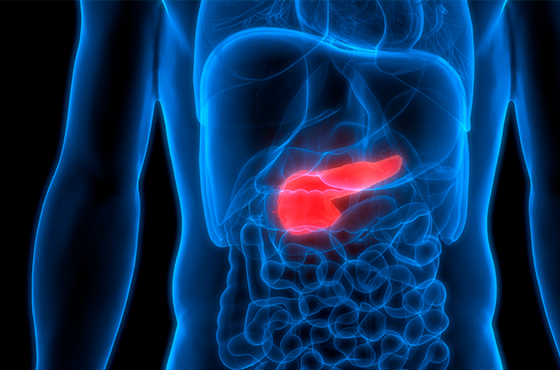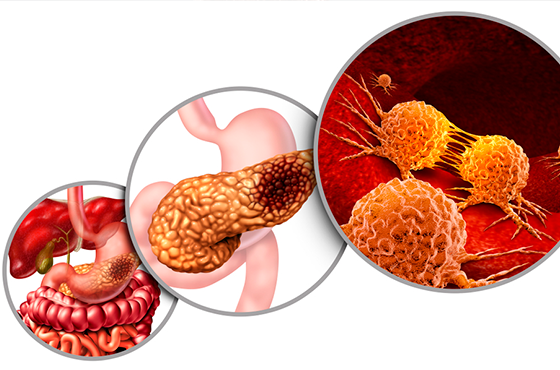Pancreatic Cancer
Pancreatic cancer is rare before age 30 and becomes more common after age 60 years. Because it is difficult to detect, it has a high mortality rate, due to its late diagnosis and aggressive behavior.
The most common pancreatic tumors, which account for 90% of diagnosed cases, are of the adenocarcinoma type (which originates in glandular tissue). Most cases affect the right side of the organ (the head), but the pancreas still consists of the body (center) and tail (left side).

INFORMAÇÕES DO AUTOR:
Dr. Marcel Autran Machado Especialista em cirurgia do aparelho digestivo e cirurgia minimamente invasivaProfessor livre-docente de Cirurgia pela Universidade de São Paulo, graduado pela Faculdade de Medicina da USP (FMUSP) e com residência em Cirurgia Geral e do Aparelho Digestivo pela mesma instituição.
CRM-SP nº 70330

The symptoms of pancreatic cancer vary depending on where the tumor is located. The most noticeable are loss of appetite and weight, weakness, diarrhea and dizziness.
The tumor that reaches the head of the pancreas causes jaundice and when the tumor advances, the patient may feel pain in the back region, at first, of low intensity, which may become stronger. Another symptom is the increase in the level of glucose in the blood, caused by the deficiency in the production of insulin, the main function of the pancreas.
The diagnosis of pancreatic cancer is made through tests such as blood, feces, urine, abdominal ultrasound, tomography, nuclear resonance of the biliary tract and the pancreas region. Confirmation is by tissue biopsy of the organ.
When discovered at an early stage, pancreatic cancer is likely to be cured. In cases where surgery is an option, the most suitable is the removal of the tumor. It is also possible to perform radiotherapy and chemotherapy procedures, associated or not, to help reduce the size of the tumor and relieve symptoms.
We know that tobacco is the main risk factor for the emergence of this type of cancer. Therefore, it is essential not to smoke, avoid excessive consumption of alcoholic beverages, in addition to adopting a balanced diet rich in fruits and vegetables. This is because the disease is also related to excessive consumption of fat, meat and alcoholic beverages, and exposure to chemical compounds, such as solvents and oil, for a long time.
Individuals who suffer from chronic pancreatitis or diabetes mellitus, who have undergone surgery for an ulcer in the stomach or duodenum, who have had their gallbladder removed, and who have a family history of cancer are more likely to develop the disease.

